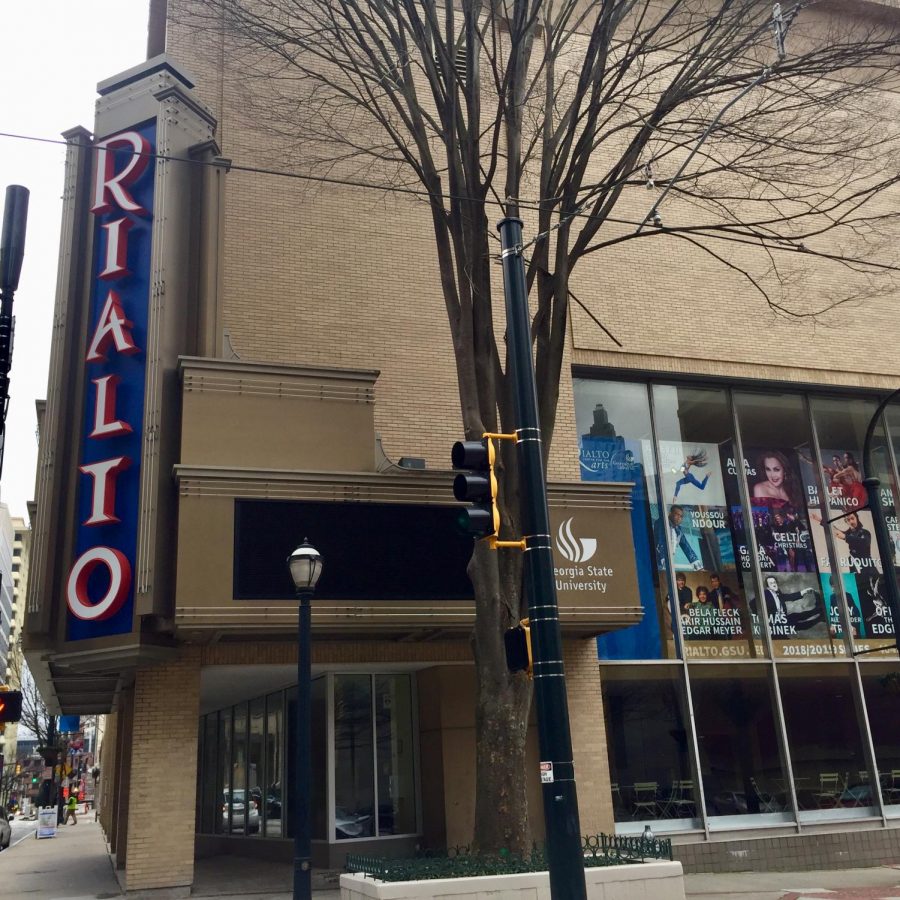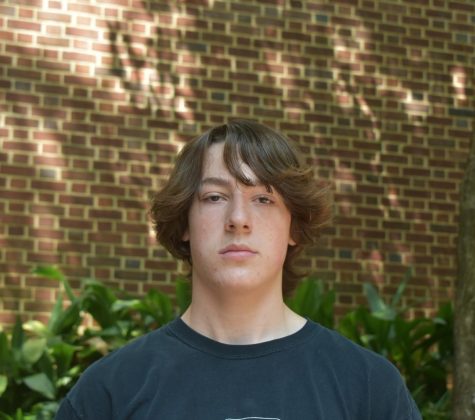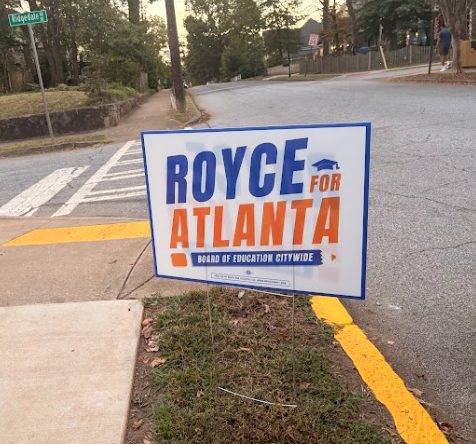GSU’s Rialto Center educates and entertains
The Rialto Center for the Arts, located in downtown and owned by Georgia State University for 22 years, produces an annual series.
February 14, 2019
The Rialto. A center for the arts. A cultural hearth. And since 1996, an education platform.
This platform has not only affected Atlanta, but it also plays a role in Grady music programs.
The Rialto’s humble beginning occurred in 1916 when it opened as a vaudeville house, featuring fine arts such as comedy, song, and dance. However, this original phase eventually ended for the building closed in 1989. Then, in 1996, it was eventually bought and reopened by Georgia State University.
“When Georgia State bought the Rialto, what the founders intended it for actually came about,” said Leslie Gordon, Director of the Rialto Center for the Arts. “As Georgia State campuses began to expand, the Rialto became a real cornerstone.”
The effects of this cornerstone have been seen throughout the city and have, in some way, brought a new life to downtown Atlanta.
“Since the Rialto re-opened in 1996, I’ve seen the neighborhood change and become much more vibrant and healthier,” Gordon said. “The Rialto has a lot to do with this change and I think it started a domino effect.”
Today, as the home for the School of Music for Georgia State University the Rialto hosts an annual series. But more importantly, they work in the education of fine arts – specifically jazz. They provide programs like the Rialto Jazz for Kids which works with middle schools.
“It’s empowering to watch the students go through the program because it teaches them so many life lessons,” Gordon said.
The Rialto continues their educational programs throughout high school with both large groups and jazz combos.
“Students that are part of the Rialto become better all around,” said Tanner Lamar, a 9th-grader at Grady who currently takes part in the high school program. “It’s more work and it forces you to balance playing at the Rialto and other activities, so you definitely get better.”
To the members and staff of the Rialto, fine arts and music are seen as incredibly important to young people of Atlanta. This is why they focus on the education and spread of the arts.
“Music and the arts are important because to be a well-rounded human, you have to appreciate the arts,” said John Sandfort, professional musician and a combo director for the high school program at the Rialto. “I don’t feel like you can do just one thing and be a well-rounded person in today’s society. The Rialto provides an outlet for students who have some interest and skill in playing music and becoming well-rounded.”
Gordon agrees, saying that the goal of the Rialto is really much simpler than it seems. Their programs focus on the wellness of the student.
“We’re not trying to create the next great jazz musician,” Gordon said. “We’re just trying to create jazz lovers and people that are really smart and appreciate the arts.”
These efforts have successfully affected multiple Grady students, both musically and socially, which has, in turn, benefited Grady and its music programs.
“The Rialto has humbled me and somewhat put me in my place in terms of skill level,” Lamar said. “I’ve met some new people at the Rialto which has helped me play better through listening to other people.”
Overall, the Rialto Center for the Arts is an important cornerstone for Atlanta and improves the diversity of the city, according to Gordon.
“I think the Rialto is important because we are a gathering place for all populations,” Gordon said. “I think we’re also important because we provide a place for the school of music and music education programs.”







